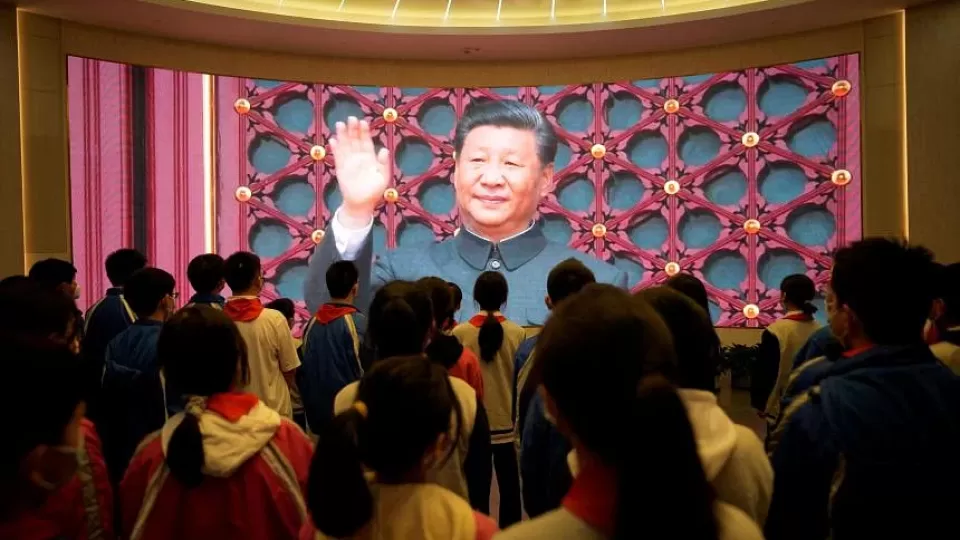March 10, 2023
BEIJING – China’s Parliament on Friday voted unanimously for Mr Xi Jinping to assume an unprecedented third five-year term as state president and chairman of the state Central Military Commission (CMC).
Delegates also endorsed his choice of outgoing executive vice-premier Han Zheng as vice-president, succeeding Mr Wang Qishan.
Mr Xi was the lone candidate, with 2,952 delegates voting to make him head of state. No one voted against him or abstained.
After the result was announced, there was sustained applause for close to a minute, with Mr Xi bowing to the audience.
The National People’s Congress, or Parliament, had amended the Constitution in 2018 to scrap a two-term limit on the presidency, setting him up to become China’s most powerful leader since Chairman Mao Zedong.
On Friday, all the delegates also elected Mr Xi as chairman of the state CMC, China’s military high command in charge of over two million active personnel in the People’s Liberation Army.
Mr Han also faced no challengers, garnering all 2,952 votes. After the result was announced, he bowed to the audience, and walked over to shake hands with Mr Xi. He then shook hands with outgoing vice-president Mr Wang.
In China, the identities of candidates up for official posts are not publicly known until election day. But a harbinger of things to come may have been when Mr Han filed into the Great Hall of the People in Beijing ahead of outgoing vice-president Wang at the opening of Parliament on Sunday.
The presidency and vice-presidency are prestigious posts, but largely ceremonial. Real power lies in the hands of the general secretary of the Communist Party of China (CPC) and the CMC chairman.
Mr Han turns 69 in April, and is a year younger than Mr Xi. In the event that Mr Xi is incapacitated or dies in office, Mr Han would assume the presidency.
Political observers believe Mr Han, who became the youngest mayor of Shanghai in 2003 at the age of 48, was given the vice-presidency ostensibly to placate the Shanghai Gang faction that ruled China almost unabated for more than a decade. This faction in the CPC was headed by late president Jiang Zemin, who had hand-picked Mr Xi to become heir apparent in 2007.
Mr Wang was given the vice-presidency in 2018 as a reward for the instrumental role he played in Mr Xi’s crackdown on official corruption from 2012 to 2017.
Both Mr Han and Mr Wang stepped down from the CPC’s Politburo Standing Committee, the pinnacle of power in China, in October 2022 and 2017 respectively after reaching the retirement age of 68.
Mr Zhao Leji, 66, ranked third in the party’s Standing Committee, was elected chairman of Parliament by all delegates, taking over from Mr Li Zhanshu. The role involves presiding over lawmaking sessions, and is ranked third in the country’s decision-making hierarchy, the Politburo Standing Committee.
After the announcement, the usually stern Mr Zhao stood up, bowed to the audience before going to the centre of the stage to shake hands with Mr Xi, breaking into a rare smile. He continued smiling when shaking hands with his predecessor, Mr Li.
The NPC also approved a plan to restructure the Cabinet and cut the number of civil servants at the central government level by five per cent over the next five years.

